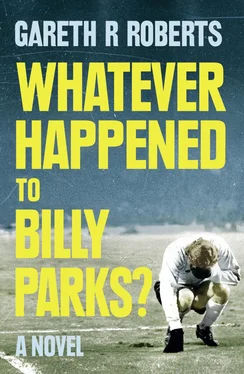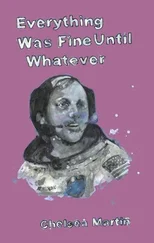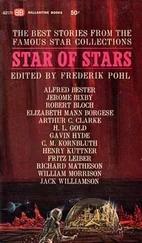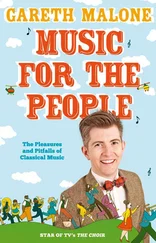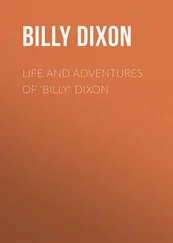‘Come on,’ said Cockle, ‘we’re a man short. Put your bag down by the goal, you can play for my team. You can play right-back. You can be Alf Ramsey.’
‘He can’t be Alf Ramsey. He’s just a kid, he’s rubbish.’ The dissenting voice was that of Charlie Scott, who was ten and had a dozen brothers and sisters who would hang around outside their house like cats. Chris Cockle wasn’t having that.
‘If he’s going to play right-back, he’s got to be Alf Ramsey.’
I had no idea whatsoever what they were going on about. I had no idea what right-back meant, never mind the name of Tottenham and England’s Alf Ramsey. I assumed that Alf Ramsey was one of the other lads on his team. All I knew was that if Chris Cockle wanted me to play, then I had no choice – Mother would have to wait for her tonic. I put the bag down by the goalposts, which were made up of a mound of rocks on one side and a stick stuffed into a hole on the other, and strutted cautiously on to the pitch, which was marked by a series of jumpers and coats.
This was serious. This was football and football is more serious than anything else.
‘Come on,’ said another gigantic boy. ‘Go and stand over there, we’re playing the lads from Manor Park. Don’t go near the ball unless I tell you, and if the ball comes to you just kick it to me. Alright? I’m Billy Wright, you’re Alf Ramsey.’
Billy Wright! This was even more confusing, surely the lad who’d introduced himself as Billy Wright was, in fact, Ginger Henderson who lived behind the corner shop and whose dad had been killed in the war. I decided against saying anything.
The game kicked off with the lads from Manor Park attempting to play a long diagonal ball out towards where I had been told to stand. Ginger Henderson (or Billy Wright) went to head it, I moved out of the way, Ginger missed the ball completely and the Manor Park left-wing was left with only the goalie, Lanky Johnson, to beat: thankfully, he put the ball wide of the pile of rocks.
Ginger picked himself up, Lanky Johnson, or Bert Williams as he had taken to calling himself, gave him a bollocking, so Ginger gave me a similar bollocking and the game continued.
This was football.
There were goals and movement and swear words and arguments and kicks and shoves and I loved it all. Lads became spitting, snarling men imbued with a sense of purpose. I started to relax. I started to watch the ball and work out, instinctively, where it would go. I started to watch the movement of my teammates; I worked out that Chris Cockle was good because he was big and fast, but little Archie Stevenson who was sat in the middle of the park, just in front of the enormous water-filled bomb crater ( If the ball goes in there, we restart with a drop ball, OK? ), was by far the best player, as he could spray passes out to the right and left. On the right, was a little fat boy called Stanley Matthews who was quite good, but the tall gangly boy, called Tom Finney, on the left-hand side, was rubbish because the ball would just bounce off his legs.
Impulsively, like a salmon lured upstream by invisible forces, I wandered from my given position at right-back and made the diametric move to the left-wing. It just seemed the most natural thing for me to do, as though it was where I belonged; I wanted the ball, I wanted to play football, I wanted to kick it, I wanted to be part of this, to feel the rush of scoring a goal, a prospect that caused a pounding of excitement that I had never felt before. Now, playing football, I was alive.
And then it happened. I scored my first goal.
Stanley Matthews, who I would later come to know and adore as Johnny Smith (oh poor, lost Johnny, Johnny Smith), cut in from the right and tried to swing over a cross for Chris Cockle: Chris jumped marginally early and the ball glanced off his bouncy brown hair across the face of the goal towards me. It dropped perfectly. I controlled it – alright, not particularly elegantly with my knee (my beautiful close control would come later) – and then instinctively, without considering anything, without a conscious thought in my little mind, found that my body had naturally formed itself into a position to shoot at the goal.
‘Shoot!’
I shot. With all my tiny six-year-old frame behind it, I shot and the ball headed towards the piece of rusty iron railing that was the near post of the Manor Park goal. Then, with the assistance of the uneven pitch the ball bounced over the goalkeeper’s leg (if he had dived with his hands he would have prevented my first ever goal, but such are the vagaries of sport) and inside the near post.
Goal. Goal. My first goal. My first bloody goal.
I felt my body and mind surge with the glorious fresh air of life. My face beamed triumphantly for the first time. Chris Cockle came over and ruffled my hair. ‘Well done, son,’ he said. ‘What’s your name again?’
‘Billy Parks,’ I said and Chris Cockle smiled at me: ‘Well done, Parksy,’ he said, then turned to the opposition with a bellowing, captain’s roar: ‘That’s eight all. Next goal the winner.’
Next goal the winner. Next goal was a cause of problems and strife.
As I chased everything on the pitch, and some of the lads started to feel a bit tired, our team became vulnerable to a break-away attack. The Manor Park centre-half, Lennie Hansen, kicked long, Ginger didn’t deal with it and the Manor Park striker, a talented little lad called Spider, who was later destined to drown in an accident involving an old well, nipped in and steered the ball past Lanky Johnson. The ball clipped the piece of wood knocking it over on to the paper bag that contained Mother’s tonic.
All hell broke loose. As Spider reeled off in celebration, Chris Cockle, Ginger Henderson and Charlie Scott declared that it wasn’t a goal as it had hit the post. Lennie Hansen wasn’t having this and he and a couple of the other Manor Park lads squared up to them.
As Chris and Lennie, now reinforced by most of the other players, exchanged blows, I ran over to my brown paper bag and surveyed the damage: the flask had smashed and the tonic had seeped out emitting a pungent oily smell. I put my hands up to my head. This was bad.
I walked home. I knew that the broken flask was a tragedy. I knew I had to think of a good lie, a good story, but all I could think about was my goal. How the ball had left my foot and how the other boys had shouted ‘Shoot!’ and I had smashed it into the near post, and how everyone had smiled at me, and how Chris Cockle had ruffled my hair and asked my name and christened me Parksy. This was what life was about. This was an elevation above and beyond the mere existence of my usual days. This was living.
But the flask was still smashed. The goal couldn’t mend that.
Back at home Carol was waiting for me. Her face swollen with tears and rage.
‘Where have you been, you idiot? Mum’s been waiting for you all morning. You know you’re supposed to come straight back from Mrs Ingle’s. Where have you been?’
‘I’ve been playing football,’ was all that I could muster.
She screamed at me, ‘Football? Football? Who cares about bloody football?’ She paused, then seethed through gritted teeth, ‘Just give me the bottle.’
She held her hand out and my head dropped.
‘It got broken. It was an accident. I didn’t mean for it to happen,’ I was mumbling.
Carol started screaming at me again.
My mother appeared at the bottom of the stairs: her face was lined and taut and anxious. ‘Where’s the bottle from Mrs Ingle’s, Billy?’
‘He’s broken it, Mum,’ my sister squealed. ‘He’s been playing football.’
I saw my mother’s face break into a desperate ugly rage, and she advanced on me and rained down blows on my head and back in syncopated rhythm as she scolded me.
Читать дальше
